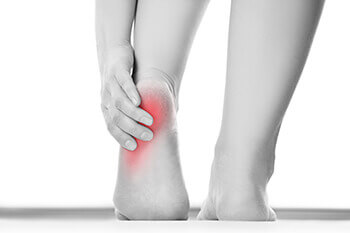Connect With Us
Heel Pain

Do you have heel pain that is worse in the morning or when you first get up from sitting?
You are not alone; every year approximately 1 million people visit the doctor for plantar fasciitis.
Plantar fasciitis accounts for 10% of runner related injuries.
Plantar fasciitis can be quite disabling and keep you from doing your normal daily activities.
Good news! 90% of the time conservative treatment will resolve plantar fasciitis.
What causes it? Overuse, old worn out shoes, improper shoes are some of the causes of plantar fasciitis.
How to prevent it? Wear proper shoes with support, avoid drastic changes in activities or running patterns.
There are many conservative treatment options that can help with plantar fasciitis- contact your doctor for treatment options and help with this condition.
Heel pain in children between the ages of 8-12 is typically due to Sever’s disease- this is different than plantar fasciitis and is due to a growth plate injury/strain. It can be caused by overuse or may have a genetic component. Contact your doctor for treatment options.
